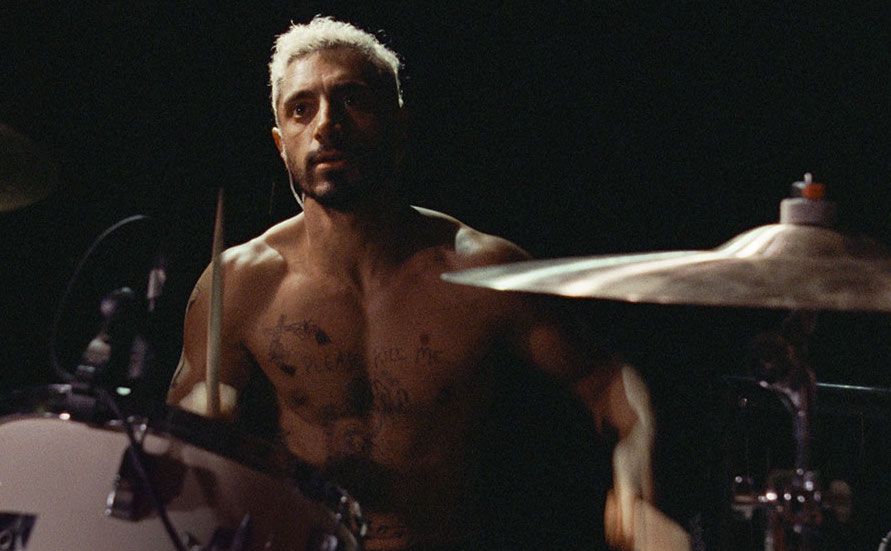
Sound of Metal
Directed by Darius Marder; Winner of Best Sound and Best Editing
A character study of Ruben (Riz Ahmed), a heavy-metal drummer and ex-addict coming to terms with hearing loss as he weighs revitalizing his flailing music career against taking a leadership role at a home for the deaf, Darius Marder’s debut feature shares The Father’s goals of immersing its audience in the subjective world of the condition central to its narrative. Consequently, Sound of Metal’s greatest achievement is its nuanced sound design that fosters an aural palette melding various degrees of hearing and filtered through numerous devices. Marder has traversed the most unorthodox path to filmmaking of any Best Picture director. The son of Massachusetts artists, he grew up on a commune and never attended college, primarily working in film as a screenwriter in partnership with Blue Valentine director Derek Cianfrance, who shares a Sound of Metal story credit.
As Ruben, Ahmed dedicates himself to his role not only through talk-show-anecdote-ready research like learning to play drums and mastering ASL, but also through an intensity that is perfectly coiffed for every stage of his deterioration. Ahmed made history as the first Muslim to garner a Best Actor nomination, but the film’s depiction of the deaf community ultimately undermines its colorblind casting. As Ruben grapples with his sudden deafness, Sound of Metal frames his professional aspirations as a selfish distraction he must overcome. To cure himself, he must fully submit to the will of program director Joe (Paul Raci) and his community, turning over his phone and keys and thus all connection to his world. Marder’s film clearly endorses the social model of disability, defining deafness not as a medical condition with a cure, but an alternative form of ability to which the world must adapt. As a result, Ruben’s desire to sacrifice everything so that he can afford cochlear-implant surgery and resume his former life with bandmate and girlfriend Lou (Olivia Cooke) appears heretical to Joe, who likens such individualism to the behaviour of an addict. The 2014 Ukranian film The Tribe covers similar territory, but never shies away from presenting its deaf characters as flawed and complex, going so far as examining the pathology that can result from such isolated groupthink.
Amid Sound of Metal’s drive to pay deference to the deaf community while complicating its protagonist, Marder falls into the disability stereotypes he tries so hard to evade, presenting the film’s deaf characters as paragons of virtue and gazed upon objects. Likewise, in its quest to represent realism, the film denies the existence of other impairments, so hyperfocused on inserts of the notes and computer screens its characters use to communicate that it creates its own accessibility barriers to viewers with visual disabilities and conditions such as dyslexia. In Marder’s world, an ambitious young man can leave the commune to chase Oscar glory, but a similar aspiration for his main character of color serves as an irreparable personal flaw.
